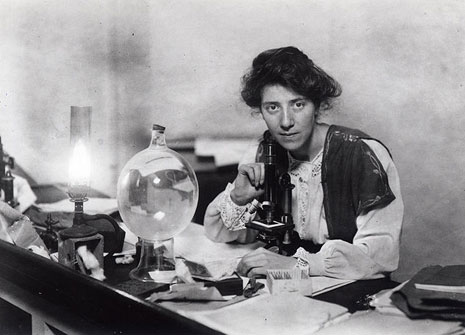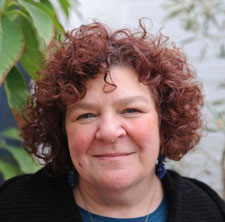Unearthing the hidden women of science and inspiring the next generation
Posted Wednesday 8 May 2013

It will involve the establishment of a network of academics to gain a better understanding of how historical perspectives might impact future education policy making. Recent statistics show that only a third of science, technology, engineering and maths students in Britain are female and just 11 per cent of senior positions in science are held by women.
"Women's unequal participation in science subjects at all levels, both in education, academia and in industry, is currently receiving close attention from policy makers, educationalists and social commentators," project leader Dr Susan Hawkins, a senior history lecturer from Kingston University, said. "Part of the purpose of our work will be to closely examine data on women in science in the 19th and 20th Centuries. The hope is that by looking at women's relationship with science in the past, we can pinpoint ways to encourage young women to participate more fully in the subject."
There was a wealth of historical information which could open a window into the past but it was often dispersed across different archives, Dr Hawkins, who originally trained as a scientist, explained. "Through the network we hope to identify where these archives are and what revelatory material they may contain." Part of the project will involve a shadowing scheme which will allow researchers studying the history of science to spend time alongside a female scientist in the laboratory, gaining an understanding of how science works today and the challenges faced by women in the field.

"The final workshop will pull together the findings from the first two events and allow us to make recommendations to government on future projects to help increase female participation in science," Dr Hawkins said.
The issue of the representation of women in science has dominated headlines in the media in recent months. According to a report in last month's Independent newspaper, female professors account for 5.5 per cent in physics, 6 per cent in chemistry and maths and just 2 per cent in engineering. This has prompted growing calls for better representation of women in science both in universities and in industry - a sentiment also echoed by Kingston University's new Chancellor American playwright and author Bonnie Greer. "It is crucial that women continue to take up the study of science and maths as historically women have been kept out of these professions, so who knows what genius has been lost?" she said recently. "When you think of all the big problems that are out there waiting to be solved, every ounce of human intelligence is needed."
Things were extremely tough for women in science in the past and they often did not receive proper recognition, according to Dr Hawkins. "It was a real struggle. For instance, the Royal Society didn't accept female fellows until as late as 1945," she said. "There were women in the scientific field but they really had to fight to be recognised, independent of any men they might have been working with."
Guests from around the world will attend a launch event for the project at the International Congress for the History of Science Technology and Medicine to be held in Manchester in July.
- Find out more about the Women In Science project.
- Find out more about studying undergraduate and postgraduate science at Kingston University.